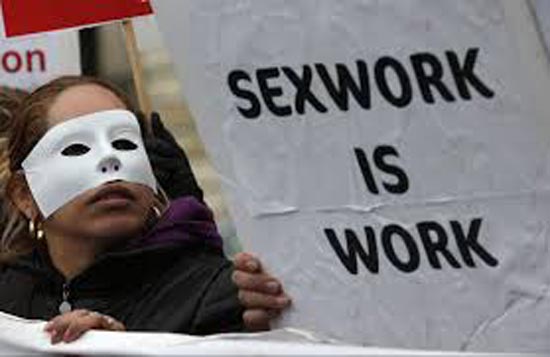
Bangalore ranks second among 53 megacities in the number of cases booked under the Immoral Traffic (Prevention) Act
Bangalore recorded the second highest number of cases under the Immoral Traffic (Prevention) Act, 1956, among all the 53 megacities in the country in the last two years.
The National Crime Records Bureau statistics reveal that the city recorded 160 cases in 2012 and 182 in 2013. As of August 31, 2014, 144 cases were booked under the ITPA, indicating a marked increase over the last two years.
The highest number of cases among megacities under the Act was booked in Chennai — 264 in 2013.
One of the reasons for the increase in the number of cases in Bangalore could be the police drive “to clear the city’s public spaces of streetwalkers”. The police said that the drive was conducted two years ago and several cases were booked under the ITPA. Following this, the number of streetwalkers (as the police call sex workers who solicit in public places) had reduced in places such as Kempegowda Bus Station, city railway station and pedestrian subways.
The city’s record on ITPA is in sharp contrast to that of Mumbai or Kolkata which have large red-light areas. While Mumbai, with the largest red-light area in Asia (Kamathipura), reported only 74 cases in 2013, Kolkata, with the second largest red-light area in Asia (Sonagachi), reported 31 cases.
The Karnataka Sex Workers Union (KSWU) alleges that the numbers only indicate an “abuse” of the ITPA. The union argues that even having a red-light area in the city will not necessarily stop this since the Act is being used “as a tool of blackmail against sex workers by the police.”
Nisha Gulur, president of the KSWU, says, “According to the Act, we are restricted from practicing sex work within 200 metres of any public place. In Bangalore, every few metre is a public place.” The union is for amending the legislation in a bid to decriminalise sex work.
Police officials, however, argue that repealing or amending the law is up to the Union government. “We are here only to enforce the laws,” an official said.
They also point out that just because the number of cases are comparatively less in other cities, it does not indicate less prostitution activities. “The cases only reflect the concentrated efforts to curb prostitution and we have been pro-active to initiate action as per the law,” said a senior official. The city police are booking cases not just under the ITPA, but also under more stringent sections of 370 and 370 A of the IPC (buying or disposing of any person as a slave).
Most of the raids on prostitution rings in Bangalore were carried out on private homes, serviced apartments, massage parlours and spas. A large number of rings running online escort services were also identified. Abhishek Goyal, Deputy Commissioner of Police (Crime), said there had been increased cases where online forums were used as a medium for soliciting clients for prostitution. They were busted with police personnel posing as customers online and nabbing the agents.
In most cases, the rescued women were from outside the State, mostly from West Bengal, Maharashtra, Odisha and Andhra Pradesh, and also from Bangladesh. The women had been lured into the trade on the pretext of providing employment in beauty parlours and garment factories.
Forced rehabilitation opposed
Sex workers complain that the so-called rehabilitation offered to them was not sustainable. “After we are ‘rescued’, we are taught to make candles, incense sticks, among other items. But we are not taught how to market them,” said Latha M.R., a member of the Karnataka Sex Workers Union. She argued that they should not be “forced” into rehabilitation. “We should have the option of choosing what we want to do,” she said.
(The Hindu)


